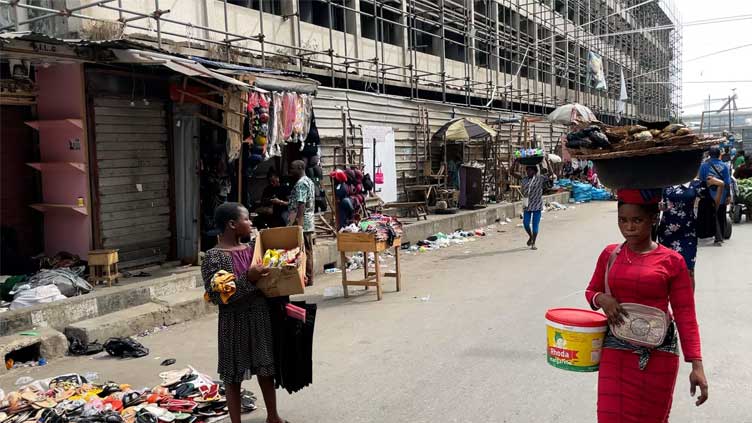'Where is the money?' Inflation and cash crisis hit hard as Nigeria goes to the polls

World
'Where is the money?' Inflation and cash crisis hit hard as Nigeria goes to the polls
Lagos – On a normal day, Balogun Market in Nigeria's Lagos is packed with shoppers looking for a bargain on anything from clothes, to freshly cooked street food or cut-price electronics.
But, as Nigerians head to the polls for Saturday's presidential election, although the aroma of spices and the cacophony of hawkers selling their wares still filled the air, there is barely a customer in sight.
"There's no business at the market. We've all just been sitting here since the morning," said market trader Ishola as she sat outside her stall selling beads and jewellery. "There's no people. Do you see anybody around? Nobody."
Across the street, another trader, named Kabiru, sat looking forlorn behind a case of unsold watches.
"There aren't any customers," he said. "Everybody is complaining of a lack of cash. There is no cash in the town."
It was a similar story across the vast market, one of the largest in West Africa, and one which sprawls across numerous streets and alleys in this megacity of more than 20 million people.
'People are hungry'
Some speculated that fear of a reoccurrence of the violence that has marred previous Nigerian elections had kept customers away. But most said things had been bad for a while and, in particular, following a botched switch to new bank notes that has plunged the entire country into an unprecedented cash crisis.
With not enough of the new notes available and most old ones no longer valid currency, lengthy and sometimes hot-tempered lines have become a common sight outside the few ATMs in the city still dispensing cash. Some have resorted to taking out their frustration with attacks on banks.
Many Nigerian businesses have been quick to adapt, switching to card payments and bank transfers whenever possible. But connectivity issues mean transactions are often time-consuming, if they go through at all.
In the habitual cut-and-thrust bustle of the market, few customers are prepared to wait.
"There is no market. No customers are coming," said Awotola, who has been selling clothes at the market for more than 20 years. "They prefer to pay in cash and there is no cash. And that's it. The lack of cash crushes everything."
Some traders said that since the banknote switch, they are struggling to make enough money simply to feed themselves and their families.
"People are hungry. Many people are crying," said Gift, another clothes-seller at the market. "There's no money. People are dying. People are struggling to find money but where is the money?"
'They beg us to lower the price'
As Africa's most populous country goes to the polls, the economy, along with security and tackling corruption, is likely to be a major factor in how Nigerians cast their votes and the cash crisis has only served to bring the issue into sharper focus.

